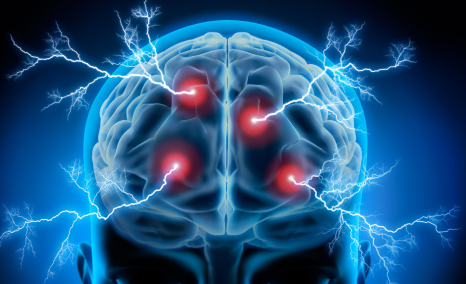Most Promising Therapies in the Parkinson’s Disease Treatment Market
Nov 06, 2025
Table of Contents
Parkinson’s disease is a progressive neurodegenerative disorder that primarily affects movement, causing tremors, stiffness, and balance problems. The condition develops when nerve cells in the brain that produce dopamine, a chemical that helps control muscle movements, become damaged or die. As one of the most common neurodegenerative diseases worldwide, Parkinson’s disease affects an estimated 10 million people globally. While the condition is most commonly diagnosed in individuals over 60, about one in ten people with Parkinson’s disease are diagnosed before the age of 50. Parkinson’s disease stages vary, with symptoms gradually worsening over time. However, despite its prevalence, many people are unaware of the condition.
As we move forward into Parkinson’s disease research and treatment, the landscape of emerging therapies is rapidly evolving. Medical research and technological advancements are creating exciting new possibilities for patients and healthcare providers. From gene therapies to advanced drug formulations, there is a surge in innovative approaches aimed at slowing the progression of the disease and improving quality of life. Companies are focusing on new therapies that target the underlying mechanisms of Parkinson’s disease, such as dopamine replacement, neuroprotective agents, and treatments for non-motor symptoms.
Downloads
Click Here To Get the Article in PDF
Recent Articles
- AbbVie Reveals Phase III TEMPO-2 Trial Positive Topline Results; FDA Accepts GSK’s NUCALA Submiss...
- Decoding Parkinson’s Diagnosis with Gene Therapies and Prevention Insights
- Voltage-Dependent T-Type Calcium Channel Blockers
- FDA Approves GSK’s Arexvy for RSV; CHMP’s Opinion on Gilead’s Hepcludex® for HDV; FDA Clearance t...
- Dengvaxia study; Opdivo racks up; FDA issues plant; Teva’s Rimsa fraud; Mission bags Fox grant
Current Landscape of Parkinson’s Disease Treatments
The current landscape of Parkinson’s disease treatments is continuously evolving, with numerous companies actively working on innovative therapies. While there is still no cure for Parkinson’s disease at present, progress is being made, and hope remains high as researchers explore new treatment options. Approved drugs for Parkinson’s disease, such as XADAGO (Newron Pharmaceuticals), DUOPA/DUODOPA (AbbVie), INBRIJA (Acorda Therapeutics), and ONGENTYS (Bial), are used to alleviate both motor and non-motor symptoms associated with the disease, offering patients valuable relief. These treatments primarily address the motor fluctuations caused by dopamine loss, which is a hallmark of Parkinson’s disease.
A major milestone came in October 2024, when AbbVie announced that the FDA had approved VYALEV (foscarbidopa and foslevodopa), the first and only subcutaneous 24-hour infusion of levodopa-based therapy for the treatment of motor fluctuations in adults with advanced Parkinson’s disease. Vyalev mechanism of action involves functioning as decarboxylase inhibitor and as dopamine receptor agonist. This approval marks a significant advancement in Parkinson’s disease treatment, providing a new therapeutic option for those who struggle with Parkinson’s disease stages that involve severe motor fluctuations.
Each new treatment approval brings us closer to better managing Parkinson’s disease and offers renewed hope for those affected. These milestones demonstrate the continuous progress being made in the fight against Parkinson’s disease, highlighting the ongoing commitment to improving the lives of those living with this condition.
Emerging Therapies in Parkinson’s Disease Treatment
In addition to the groundbreaking approval of VYALEV, many other promising Parkinson’s disease treatments are currently in the Parkinson’s Disease pipeline, including innovative gene therapies and disease-modifying treatments aimed at slowing the neurodegenerative process and improving patient outcomes. These emerging therapies offer renewed hope for the future, signaling that advancements in Parkinson’s disease treatment are accelerating. However, the road to a definitive cure remains ongoing, with researchers worldwide working tirelessly to uncover new breakthroughs.
Some of the most exciting drugs in development include Tavapadon from AbbVie, P2B001 from Pharma Two B, NE3107 from BioVie, BHV-8000 from Biohaven Pharmaceuticals, and ABL301 from ABL Bio, Inc., among others. These therapies hold great promise, targeting different aspects of Parkinson’s disease and offering new mechanisms of action that could provide better management of both motor and non-motor symptoms. As these drugs move forward through clinical trials, the Parkinson’s disease treatment market is poised for significant transformation. Let’s explore these therapies in more detail and assess their potential to change the future of Parkinson’s disease care.
AbbVie’s Tavapadon
Phase – Preregistration
AbbVie is advancing tavapadon, a promising treatment for both early and late-stage Parkinson’s disease. Designed as an orally bioavailable, once-daily partial agonist, tavapadon selectively targets the dopamine D1/D5 receptor subtypes, allowing it to balance motor activity with a favorable safety profile. By differentially activating the direct motor pathway, tavapadon is designed to provide motor benefits while minimizing the side effects commonly associated with non-selective dopamine stimulants, such as daytime sedation, somnolence, compromised impulse control, and an increased risk of psychotic symptoms, including hallucinations.
One of tavapadon’s key advantages is its ability to activate the D1/D5 receptor subtypes in a way that maximizes motor benefits while avoiding the receptor over-excitation and desensitization that can lead to dyskinesia and increased “off” time seen with full dopamine agonists. This makes tavapadon a versatile candidate for both monotherapy in early-stage Parkinson’s disease and adjunctive therapy for advanced stages of the disease.
In April 2024, Cerevel Therapeutics reported positive topline results from the pivotal Phase III TEMPO-3 trial, reinforcing tavapadon’s potential as a once-daily treatment for Parkinson’s disease. Subsequently, in August 2024, AbbVie completed its acquisition of Cerevel Therapeutics, bringing the company and its promising Parkinson’s therapy under the AbbVie umbrella. Later, in September 2024, AbbVie announced positive topline results from its own pivotal TEMPO-1 trial, which evaluated tavapadon as a standalone treatment for early-stage Parkinson’s disease. This Phase III, double-blind, randomized, placebo-controlled trial demonstrated the efficacy, safety, and tolerability of tavapadon at two fixed doses over 27 weeks.
In September 2025, AbbVie announced the submission of a New Drug Application (NDA) to the US Food and Drug Administration (FDA) for tavapadon. This NDA submission marks a significant milestone in the pathway toward tavapadon FDA approval. The submission is based on results from the TEMPO clinical development program that evaluated the efficacy, safety, and tolerability of tavapadon across a broad Parkinson’s disease population. This includes two Phase III trials (TEMPO-1 and TEMPO-2) in early Parkinson’s disease, and one Phase III trial (TEMPO-3) with tavapadon as adjunctive to levodopa in patients experiencing motor fluctuations
Pharma Two B’s P2B001
Phase – III
P2B001, developed by Pharma Two B, is an innovative once-daily combination treatment for Parkinson’s disease that blends extended-release pramipexole, a low-dose dopamine agonist, with rasagiline, a low-dose MAO-B inhibitor. Pramipexole works by mimicking dopamine’s effects in the brain, while rasagiline helps preserve dopamine by inhibiting its breakdown. The dual mechanisms of these two drugs work synergistically, enhancing each other’s effectiveness, allowing for lower doses to be used without compromising therapeutic benefits.
The goal behind the development of P2B001 is to offer a combination of these two drugs in an optimized formulation that not only improves control of Parkinson’s disease symptoms but also reduces the risk of side effects often seen when each drug is used individually or when combined in their currently available commercial forms. In November 2023, Pharma Two B published data on Movement Disorders from a Phase III study evaluating P2B001. The results demonstrated that the combination therapy was well tolerated and led to fewer sleep-related and dopaminergic adverse events compared to the commercially available doses of pramipexole ER. An NDA submission to the FDA is planned for the first half of 2026, marking a significant step toward bringing this promising treatment to market.
Biohaven Pharmaceuticals’ BHV-8000
Phase – III
BHV-8000 is an investigational, orally administered, brain-penetrant inhibitor of TYK2 and JAK1 kinases currently being evaluated in a global Phase II/III clinical trial for the treatment of early Parkinson’s disease (PD). By targeting neuroinflammation and immune dysregulation, the key contributors to neuronal loss, BHV-8000 aims to modulate signaling pathways in microglia and T-cells within the central nervous system. This mechanism positions it as a potential disease-modifying therapy rather than a purely symptomatic treatment, addressing one of the major unmet needs in PD management.
In Phase I studies involving healthy adults, BHV-8000 demonstrated a favorable pharmacokinetic and safety profile, with a geometric mean half-life of 11–14 hours and cerebrospinal fluid–to-plasma ratios of approximately 0.5, confirming CNS penetration. Adverse events were mild and comparable to placebo, with no serious events reported. Biomarker analyses showed greater reductions in inflammatory mediators (IP-10, hsCRP, and IFN-β) compared to placebo, reflecting the drug’s anti-inflammatory activity. Together, these results highlight BHV-8000’s potential as a first-in-class, brain-penetrant TYK2/JAK1 inhibitor capable of mitigating neuroinflammation and slowing neurodegeneration in Parkinson’s disease and related conditions.
Cerevance’s Solengepras
Phase – III
Solengepras is an innovative investigational therapy targeting GPR6, a receptor identified through NETSseq technology. GPR6 is primarily expressed in dopamine receptor D2-positive cells of the medium spiny neuron (MSN) indirect pathway, with little to no expression in the D1 dopamine receptor-positive cells of the MSN direct pathway. By selectively inhibiting GPR6, solengepras aims to reduce periods of symptomatic worsening, known as “OFF time,” while mitigating the side effects commonly associated with traditional dopaminergic therapies, such as L-DOPA. This precision-driven approach offers a promising alternative for managing Parkinson’s disease symptoms more effectively and with fewer adverse effects.
Traditional Parkinson’s disease treatments often involve non-specific dopamine replacement, which lacks the precision needed to restore the delicate balance between the MSN pathways. This can lead to side effects, such as dyskinesia and excessive sedation. Solengepras’ selective mechanism targets GPR6 to address motor symptoms directly, without the risks of broad dopaminergic activation. By offering a focused therapeutic intervention, solengepras could redefine how Parkinson’s disease is treated.
Recent results from the Phase II adjunctive study highlight the Parkinson’s disease drug’s potential. Patients in the 150 mg dose cohort experienced a statistically significant reduction of 1.3 hours in daily OFF time compared to placebo within just 27 days of treatment. This represented a 1.6-hour improvement from baseline. Additionally, solengepras demonstrated dose-dependent improvements in UPDRS Part II scores, which measure activities of daily living. These benefits were evident within four weeks, indicating that solengepras may provide broader improvements beyond motor symptoms, enhancing overall quality of life for patients.
Solengepras also showed a favorable safety profile. Unlike many dopaminergic therapies, it did not increase daytime sleepiness as measured by the Epworth Sleepiness Scale (ESS). Instead, it showed a trend toward reduced daytime sleepiness, further enhancing its appeal as a Parkinson’s treatment. The drug was generally well-tolerated, with low rates of adverse events and minimal dopaminergic side effects.
Currently, solengepras is being developed for use across the spectrum of Parkinson’s disease. It is being studied as an adjunctive treatment in the ARISE Phase III pivotal trial, targeting patients with motor fluctuations. With its targeted mechanism, promising clinical results, and superior tolerability, solengepras represents a significant step forward in the search for better treatments for Parkinson’s disease.
BioVie’s Bezisterim
Phase – II
NE3107, a derivative of β-androstenetriol, a naturally occurring adrenal sterol metabolite, has been developed to enhance oral bioavailability and stability. This compound demonstrates anti-inflammatory and insulin-sensitizing properties, and notably, it has the ability to enter the brain. NE3107 works by binding to ERK1/2 kinases, which are involved in inflammatory signaling and insulin responses. Unlike other compounds, it does not interact with nuclear steroid hormone receptors and has no androgenic or estrogenic functions, making it non-immunosuppressive.
Preclinical studies have shown that NE3107 has strong anti-inflammatory effects in vitro, and neuroprotective effects in animal models of conditions such as optic neuritis and glaucoma, where it reduced microglial activation. In the Parkinson’s disease mouse model, it was reported to protect against dopaminergic neuron loss. The compound also demonstrated an ability to improve the efficacy of L-dopa while reducing dyskinesia in Parkinsonian marmosets. Several Phase I studies have already been completed in various indications, including impaired glucose tolerance, Type 2 diabetes, ulcerative colitis, and rheumatoid arthritis, showing promising results. Most side effects were mild to moderate, with no serious adverse events attributed to the drug.
In January 2022, BioVie initiated a Phase I/II trial to evaluate the safety, tolerability, and pharmacokinetics of NE3107 in people with Parkinson’s disease. This trial aimed to assess drug-drug interactions with levodopa and evaluate various clinical endpoints, including motor and non-motor symptoms of Parkinson’s disease, dyskinesia, and the compound’s pharmacokinetics. On November 4, 2024, BioVie announced that the PD-202 trialof bezisterim in early Parkinson’s disease patients, was fully funded. This promising new Phase II trial, the SUNRISE-PD clinical trial, is a randomized, double-blind, placebo-controlled trial evaluating bezisterim as a first-line, standalone treatment for newly diagnosed Parkinson’s disease patients.
Market Dynamics Influencing Parkinson’s Disease Therapy Development
The market for Parkinson’s disease in the United States was valued at USD 3,399 million in 2024 and is projected to experience substantial growth over the coming decade. This growth is attributed to increasing awareness of Parkinson’s disease, advancements in diagnostic techniques, and the anticipated launch of novel therapies currently in development. With a CAGR expected to remain robust from 2024 to 2034, the Parkinson’s disease market is on a trajectory for steady expansion.
Key drivers of this growth include the rising prevalence of Parkinson’s disease as diagnostic capabilities improve, coupled with a greater public understanding of the condition and its impact. Emerging therapies hold the potential to revolutionize treatment options and enhance patient outcomes, further accelerating market expansion. However, the success of these therapies in achieving widespread adoption will depend on their clinical efficacy, safety profiles, and cost-effectiveness. If successful, these innovations could significantly reshape the Parkinson’s disease therapy landscape, creating new opportunities for growth while addressing unmet patient needs.
Future Outlook for Parkinson’s Disease Treatments
The treatment landscape for Parkinson’s disease continues to face significant challenges, particularly in addressing unmet needs for curative and disease-modifying therapies. Managing motor symptoms, such as tremors, gait disturbances, and balance issues, alongside non-motor symptoms like psychosis, remains a critical area for improvement. Despite advances in symptomatic treatments, addressing the progression of Parkinson’s disease and improving life expectancy for Parkinson’s patients require transformative innovations.
Encouragingly, a robust pipeline of medications is under development, with many targeting alpha-synuclein pathology, widely regarded as a key driver of neurodegeneration in Parkinson’s disease. These drugs hold promise as potential disease-modifying therapies that may slow or even halt the progression of the condition. In addition, regenerative approaches, such as stem cell-based treatments and gene therapies, are advancing rapidly, offering hope for reversing some stages of Parkinson’s disease damage.
As research progresses, these innovative treatments are expected to address the varying stages of Parkinson’s disease, offering tailored options for early, mid, and advanced stages. With a growing understanding of what Parkinson’s disease entails and its underlying mechanisms, the future outlook for Parkinson’s therapies is optimistic, suggesting that several novel and effective treatments will become available within the next decade. These developments promise to transform the standard of care and significantly enhance the quality of life for those affected by this complex neurodegenerative disorder.

FAQs
The Parkinson’s disease market in the United States was valued at USD 3,399 million in 2024. Driven by the launch of novel therapies like VYALEV, NDA submission of Tavapadon, and upcoming gene therapies, the market is projected to expand at a strong CAGR from 2025 to 2034.
The Parkinson’s disease market in the United States was valued at USD 1.8 billion in 2023. Driven by the launch of novel therapies like VYALEV, Tavapadon, and upcoming gene therapies, the market is projected to expand at a strong CAGR from 2025 to 2034.
Approved in October 2024, AbbVie’s VYALEV became the first 24-hour subcutaneous levodopa-based infusion therapy approved for advanced Parkinson’s disease. This breakthrough provided a continuous and more stable dopamine supply, significantly reducing motor fluctuations for patients who struggle with conventional oral medications.
AbbVie, Biohaven Pharmaceuticals, BioVie, and Cerevance are among the leaders, focusing on therapies that address both motor and non-motor symptoms. Their candidates include gene therapies and novel oral drugs with differentiated mechanisms of action.
Stem-cell–based therapies designed to replace lost dopaminergic neurons are advancing through early-stage trials. By 2034, regenerative approaches could move from experimental to mainstream, potentially complementing or even surpassing current dopamine-based treatments.
Downloads
Article in PDF
Recent Articles
- Evolving Landscape of Multiple System Atrophy Treatment: Recent Developments and Future Directions
- Notizia
- The Parkinson’s Treatment Landscape: Progressing Too Slowly for an Expanding Patient Base
- Evaluation of Rapidly Evolving Parkinson’s Disease Therapeutic Market
- Key Updates on Phase 1 Trial of AB-1005 Gene Therapy for Multiple System Atrophy-Parkinsonian Typ...



